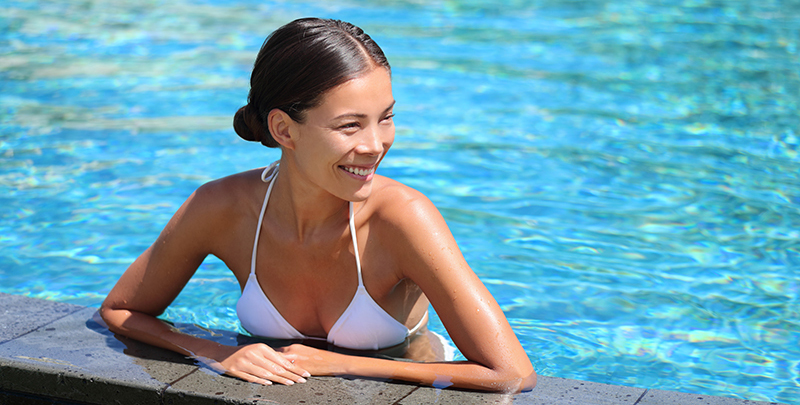Maintaining a swimming pool all year round is a challenging task, but it's essential to ensure that the water remains clean and safe for swimming. By doing so, you can avoid expensive repair costs that may arise if the pool is neglected during the off-season. It also allows you to maximize your pool usage without worrying about the quality of the water.

One crucial aspect of pool maintenance is monitoring the total alkalinity (TA) levels, which refers to the amount of alkaline in the water. TA and pH levels are interrelated, with high alkalinity leading to high pH and low alkalinity resulting in low pH. The recommended TA reading for an average pool is 100 ppm, while the optimal pH range is between 7.4 to 7.6 on the numeric scale of a pH test kit. Maintaining the correct pH level is crucial to preserving the pool finish and equipment, as low pH levels can dissolve chlorine quickly, while high levels can render it inactive.
Calcium hardness is another critical factor in pool maintenance, as having the right amount of calcium in the water is essential. Too little calcium can cause plaster erosion, while excessive amounts can lead to cloudy water, scaling, and stains. The ideal range for calcium hardness is between 200 to 400 ppm, with 300 ppm being optimal for most pools.
Stabilizer is a chemical additive that helps retain chlorine in the water, similar to how insulation retains heat or air conditioning. It protects some chlorine compounds from sunlight degradation, which can reduce their effectiveness. Maintaining a stabilizer level between 40 to 100 ppm is recommended, as low levels can lead to increased chlorine usage, while high levels may require water dilution.
Total dissolved solids (TDS) refer to the minerals that remain in the water as it evaporates. Concentrated TDS levels can make it harder for chemical additives to work, leading to potential stains. A TDS reading of 3000 ppm or more may require draining some water and adding fresh water to maintain optimal water quality.
In conclusion, taking care of a pool requires year-round maintenance, and it doesn't stop when you put the cover on. To ensure a clean and successful opening, it's essential to continue caring for your pool during the off-season, such as fall, winter, and early spring.